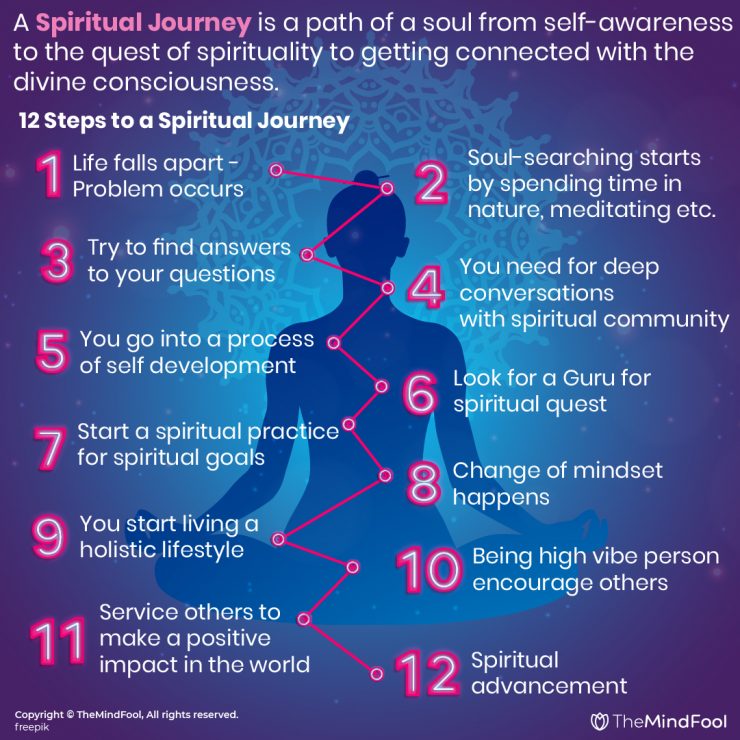The Bahá’í teachings offer profound insights into the nature of the spiritual journey, emphasizing the potential for personal transformation and the cultivation of a deeper connection with the Divine. To embark on this sacred journey is to navigate the intricacies of self-discovery, moral upliftment, and the pursuit of an ever-expanding understanding of one’s purpose in life. Below is a comprehensive guide on how one might endeavor to become a more spiritual individual within the framework of Bahá’í principles.
1. Understanding the Spiritual Framework
At the heart of the Bahá’í Faith lies a robust spiritual framework that encompasses the oneness of God, humanity, and religious truths. This monotheistic foundation posits that all religions stem from a single, divine source. Familiarity with the core tenets, including the oneness of humanity and the harmony of science and religion, is paramount. This understanding shapes personal beliefs and nurtures a worldview grounded in unity and acceptance.
2. Individual Reflection and Self-Assessment
Genuine spiritual growth commences with introspection. Individuals are encouraged to assess their thoughts, feelings, and behaviors critically. Meditation and prayer serve as avenues for self-examination. Through reflective practices, one can identify areas in need of improvement, acknowledging personal challenges and aspirations. This honesty fosters a clearer understanding of one’s spiritual objectives.
3. Engaging with Sacred Texts
The writings of Bahá’u’lláh and ‘Abdu’l-Bahá provide a rich tapestry of guidance and inspiration. Regular engagement with these texts not only illuminates spiritual principles but also facilitates a deeper connection with the teachings of the Faith. Readers may explore themes of love, justice, and unity, cultivating a comprehensive grasp of the metaphysical underpinnings of the Bahá’í teachings. Active participation in study circles can provide a communal dimension to this exploration, fostering collaborative learning and shared insights.
4. Cultivating Virtues
Bahá’í teachings emphasize the importance of moral development. Virtues such as kindness, honesty, and humility play a pivotal role in the spiritual journey. The cultivation of character is not merely encouraged; it is an essential aspect of becoming more spiritual. Practices that promote these virtues—such as service to others, ethical decision-making, and fostering meaningful relationships—can significantly enhance one’s spiritual life. Set tangible personal goals centered around virtue cultivation to track progress made along the spiritual path.
5. Serving Humanity
The Bahá’í teachings advocate for selfless service as a pathway to spiritual elevation. Serving others promotes a sense of interconnectedness and contributes to the betterment of society. This service might manifest in various forms, such as volunteering for community projects, participating in social action initiatives, or engaging in efforts to promote equality and justice. Such endeavors serve both individual and collective spiritual development, enhancing the broader community while fostering personal growth.
6. Building Community
Community plays an integral role in the Bahá’í experience, where fellowship and collaboration foster spiritual growth. Engaging with a diverse group of believers allows for the exchange of ideas and support. Attendance at local gatherings, such as firesides, holy day celebrations, and devotionals, reinforces a sense of belonging and shared purpose. The communal aspect nurtures accountability and encourages individuals to aspire towards higher spiritual ideals collectively.
7. Emprising Education
Education is highly revered in Bahá’í teachings. The pursuit of knowledge—both spiritual and material—is deemed essential for personal and societal advancement. Individuals are urged to seek educational opportunities that broaden their understanding and capacity for service. Lifelong learning extends beyond formal education; it encompasses diverse life experiences, engagement with different cultures, and the acquisition of skills that can contribute to one’s spiritual and community-oriented initiatives.
8. Embracing Diversity
The principle of oneness calls for the acceptance and celebration of diversity in all its forms. Engaging with individuals from various backgrounds enriches one’s spiritual journey and fosters a deeper appreciation for humanity’s collective experience. Learning from others, showing empathy towards differing perspectives, and embracing inclusive practices allows for the dismantling of prejudices and enhances spiritual maturity.
9. Experiencing the Transformative Power of Prayer
Prayer is a fundamental component of the Bahá’í spiritual journey. Engaging in daily prayers cultivates a profound connection with the Divine and invites tranquility. Additionally, prayer serves as a source of inspiration and guidance, particularly during challenging times. Varying one’s prayers—through petitions, praises, or thanksgiving—can enrich the experience and deepen one’s engagement with the spiritual realm.
10. The Continuous Journey
The spiritual journey is a lifelong endeavor. There is no conclusive endpoint, as each stage of growth opens the door to new insights and experiences. Remain patient and resolute; embrace the ups and downs inherent in this pursuit. Regularly revisiting one’s goals, reflecting on progress, and remaining open to transformation keeps the journey dynamic and ongoing.
In conclusion, the path toward becoming a more spiritual person is characterized by a multifaceted approach that harmonizes intellect, character development, and community engagement. By immersing oneself in the Bahá’í teachings and actively applying these principles, individuals can embark on a rewarding spiritual journey that contributes not only to personal fulfilment but also enhances the collective upliftment of humanity.
